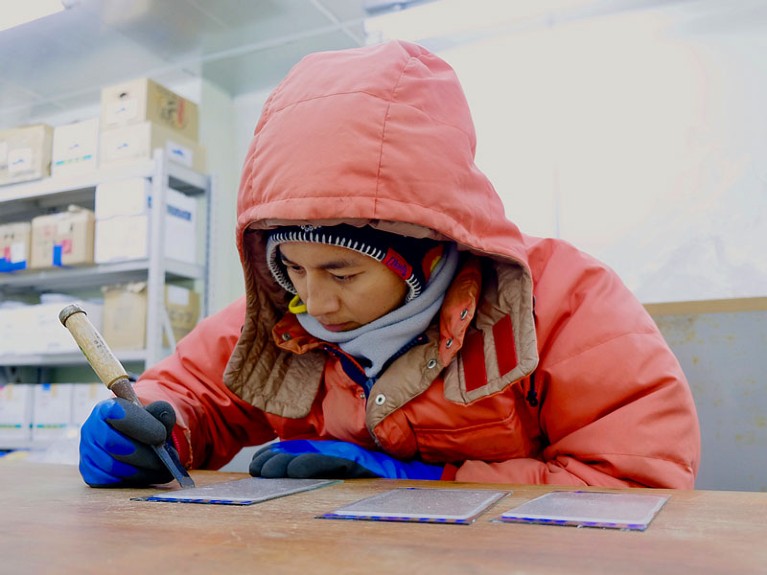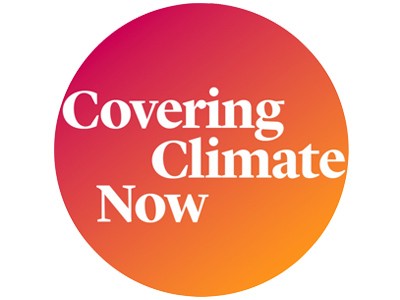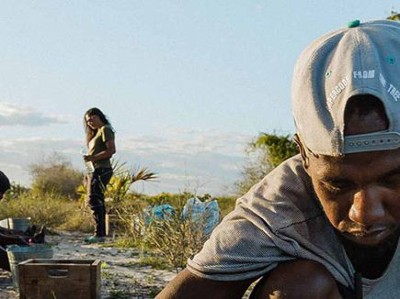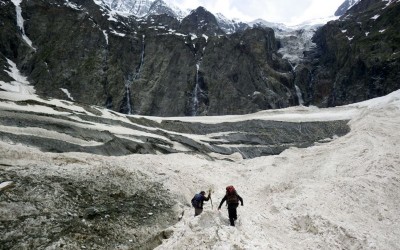
Pat Wongpan, a sea-ice researcher, makes thin sections of the substance in a cold room at Hokkaido University, Japan.Credit: Pat Wongpan
Pat Wongpan, a postdoc at the Institute of Low Temperature Science at Hokkaido University in Sapporo, Japan, is one of 31 early-career polar researchers who have called for greater diversity and inclusion in Arctic and Antarctic science. In November, Wongpan is set to join the Japanese Antarctic expedition to study the eastern warm-cavity ice shelf that is likely to melt and contribute to a rise in sea level. Polar researchers want their efforts to benefit local communities — but need funding bodies to appreciate those efforts, he says.
Why Nature joined the Covering Climate Now initiative
How did this group of 31 Arctic researchers come together?
In May 2019, our group assembled at the Next Generation Polar Researchers Leadership Symposium on Catalina Island in California. That week in Rovaniemi, Finland, the Arctic Council — an intergovernmental forum composed of eight northern nations and six Indigenous groups from the Arctic that was established to coordinate sustainable development and environmental protection — held its biennial meeting. But the council failed to issue the customary joint declaration on scientific priorities — reportedly because of attempts by US diplomats to remove any mention of climate change from the agreement. This news was a big topic of conversation during meals and breaks at our leadership symposium, so we added it to the agenda for formal discussion.
What are some concerns of the Next Generation researchers?
We are frustrated with how long it can take for published scientific findings to reach policymakers. We also feel that there are too few connections between policymakers and the affected people, who are often Indigenous, in Arctic regions. Informed action is urgently needed. Our discussions yielded several suggested changes to increase awareness and hopefully speed up the connection between research and policy development in polar regions. Broadly, we want to decolonize the production of scientific knowledge and emphasize greater collaboration and communication with Indigenous people through transdisciplinary research efforts that are more inclusive.
Where was your cohort from?
Most of the attendees were from North America, the United Kingdom or Europe — or were working in those countries at the time. A person from India and I were the only ones originally from tropical, developing nations. I come from Thailand, and define myself as a sea-ice physicist. In the future, we hope the leadership symposium will also include people from Arctic communities affected by climate change. Personally, I hope the scientific community will encourage more connections between scientists in developing countries and those working on polar programmes in richer countries.
What prompted the focus on diversity in Arctic science?
After the lack of agreement at the Finland meeting, it became even clearer that we can no longer simply talk about climate change. We now face a climate crisis, and there is little time for countries to take action. Scientists must engage with society. To develop the most robust and inclusive plans to adapt to climate change, we need to involve more diverse groups in research and discussions on the issue. We must work with Arctic communities, Indigenous peoples, groups from non-polar countries who will be impacted by a rising sea level and other international perspectives. We cannot make change alone.
What do you want funding bodies to do?
Scientists conduct research and write publications with support from funding agencies. The Next Generation group thinks it’s equally important to engage with the communities affected by climate change. We want funding agencies to prioritize those efforts. Grant solicitations could include criteria that require knowledge to be co-produced with Indigenous people. A good example of inclusive grant funding is New Zealand’s Vision Mātauranga, which aims, for example, to develop climate-adaptation solutions for New Zealanders by funding efforts that combine Western science with the traditional knowledge of the Maori, New Zealand’s Indigenous people. Under this programme, government grant applications are judged on the basis of the degree to which they involve and engage with Maori people, include traditional knowledge in the research and deliver project results to those communities. The Marsden Fund, a prestigious programme that provides research grants and is administered by the Royal Society of New Zealand, adopted the Vision Mātauranga to guide its grant-proposal assessment.



 Teenage activists and an IPCC triumph
Teenage activists and an IPCC triumph
 How one Canadian scientist is tapping into the knowledge of Indigenous communities
How one Canadian scientist is tapping into the knowledge of Indigenous communities
 Polar bears are wasting away in a changing climate
Polar bears are wasting away in a changing climate








